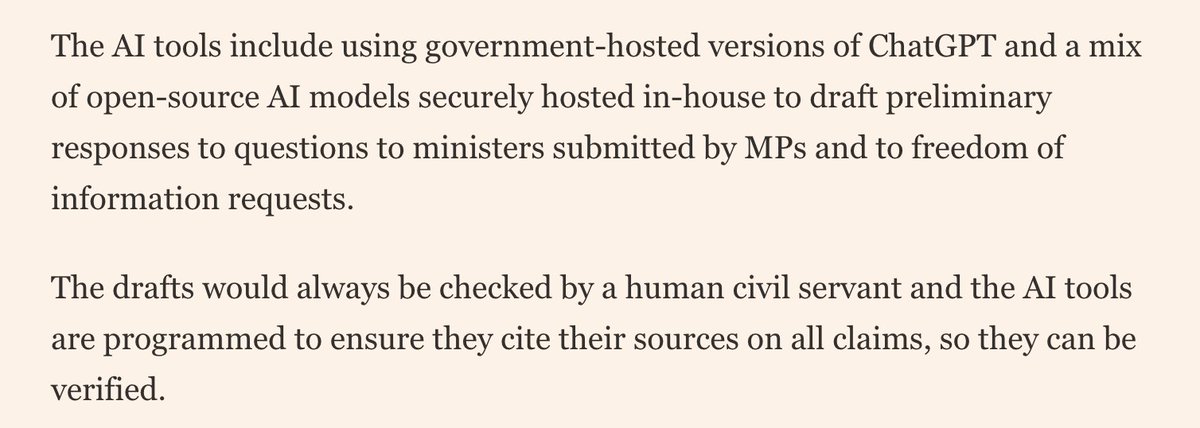People often ask me if I think computers could ever understand language. You might be surprised to hear that my answer is yes! My quibble isn't with "understand", it's with "human level" and "general".
>>
>>
https://twitter.com/emilymbender/status/1578430469628391424
To answer that question, of course, we need a definition of understanding. I like the one from Bender & @alkoller 2020: Meaning is the relationship between form and something external to language and understanding is retrieving that intent from form.
>>
>>

So when I ask a digital voice assistant to set a timer for a specific time, or to retrieve information about the current temperature outside, or to play the radio on a particular station, or to dial a certain contact's phone number and it does the thing: it has understood.
>>
>>
Has it understood the same way or as well as a human would? No. It doesn't make inferences about what the timer is for based on shared context with me or wonder what I plan to do outdoors.
>>
>>
But that's okay, because it's a tool, involving limited language understanding, and it has served its purpose. And it's a very impressive and interesting tool! Language is cool and building computer systems that can usefully process language is exciting!
>>
>>
In other words: linguistics, computational linguistics, and #NLPRoc all collectively and separately have value completely unrelated to the project of "AI".
>>
>>
But the #AIhype is making it harder to do that work. When AI bros say their mathy maths are completely general solutions to everything language & people believe them, folks working on the actual details of language, lg use, functioning lg tech have to first push through that.
>>
>>
I'm unmoved when people talk about one danger of #AIhype being the prospect of it bringing on another AI winter. But I do care that #AIhype is making it harder (in this and many ways) for researchers grounded in the details of their research area to do our work.
• • •
Missing some Tweet in this thread? You can try to
force a refresh







